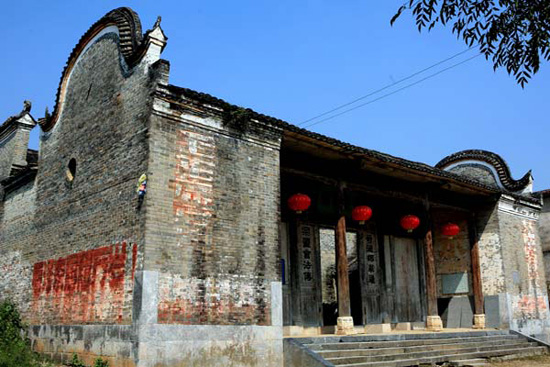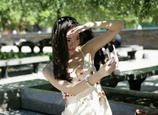
 |
| The Zhou family temple pays tribute to the village's past glories. (China Daily/Huo Yan) |
Villagers share the same family name, Zhou, and they identify themselves as descendants of Zhou Dunyi, who is believed to be the founder of Neo-Confucianism, an ethical and metaphysical Chinese philosophy in the Song Dynasty (960-1279).
Neo-Confucianism was to create a more rationalist and secular form of Confucianism by rejecting superstitious and mystical elements of Taoism and Buddhism.
Zhou Dunyi's philosophy has great influence on the villagers' attitudes and actions even today.
Most villagers I have met are polite and modest.
A big Zhou family temple, built with stone bases, gray bricks, wooden pillars and rafters as well as black earthenware tiles, is perched near the bridge on the village side of the river.
The rundown wooden frontage indicates the temple has not been repaired for a long time.
Zhou Zhihua, gatekeeper of the temple, says: "Five yards of the temple were demolished in the 'cultural revolution'. What remains is only the classroom yard."
The temple, once covering an area of 1,200 square meters, was a preparatory school where villagers took the imperial exams from 1888. There were dorms, libraries, classrooms, canteens, gardens and auditoriums.


















 Man swims in flood to deliver food for pregnant wife
Man swims in flood to deliver food for pregnant wife


![]()
